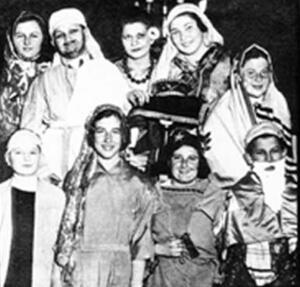Purim Poem: Mishloach Manot
On my neighbor’s doorstep
I left a brown paper bag.
In it, I put two hamentaschen,
a clementine,
some chocolate pretzels,
and a small box of raisins.
To increase peace, love, and
friendship in the world,
obviously.
And then I walked away
feeling lighter,
unburdened,
the weight of endless obligation
lifted
for a moment.
You are permitted
to give and then walk away.
There are limits.
You may close your door,
your hand, your heart.
You can do all these things and
you will.
You must, actually.
But you may not bless
The closed door.
You may not turn your back
and say amen.
Rabbi Cohen Anisfeld's Reflection:
One of my favorite practices on Purim is the mitzvah of mishloach manot– delivering gifts of food to friends and neighbors. Rabbi David Hartman relates this mitzvah to the fact that the Book of Esther, which we read on Purim, does not mention the name of God. Purim speaks to all those times and places in which it is difficult to discern the presence of the divine in our world. For Hartman, the obligations of Purim teach us that the religious response to the hiddenness of God is radical human responsibility. What do we do when we can’t see God’s face? We turn our faces toward each other,we take care of each other– by delivering gifts of food to friends (mishloach manot) and by giving tzedakah to the poor (matanot la’evyonim).
Why don’t we say a blessing over the mitzvah of mishloach manot According to the Seridei Esh, R. Yaakov Yechiel Weinberg, the mitzvah of mishloach manot is intended to increase peace, love and friendship in the world – and as such, it is a mitzvah t’midit– a perpetual mitzvah that is incumbent upon us at all times and has no break. It is a mitzvah we can never say we have fulfilled, a mitzvah over which we can never say amen.
Rabbi Cohen Anisfeld is featured in JWA's Women Rabbis Exhibit.








Love this poem. Who wrote it?